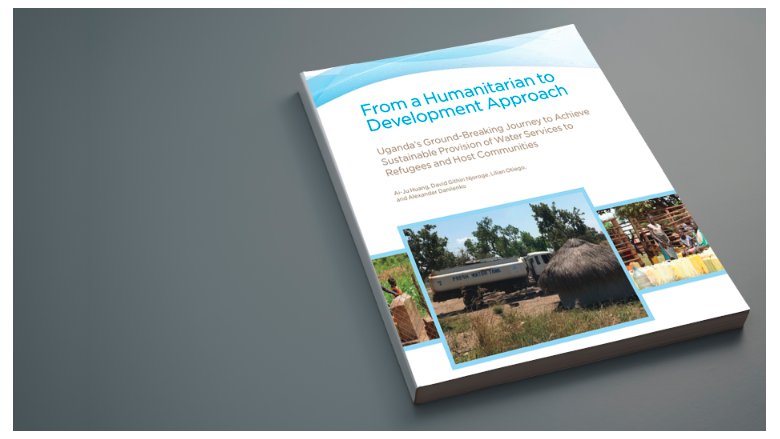The World Bank provided lending, technical assistance, and analytics. These were instrumental in presenting the evidence to support policy dialogue, drive reform, and mobilize donor money to pay for the transfer of water systems in refugee settlements to national utilities such as Uganda’s National Water and Sewerage Corporation (NWSC). The UNHCR convened and coordinated key humanitarian and development players. The GoU reformed policies, regulatory frameworks, and sector plans. All this enabled the gradual handover of 200 water schemes in refugee settlements from UNHCR to national utilities, including steps taken toward charging refugees modest user fees, designed to help sustain water services.
Key results thus far include:
• Mobilization of $57 million from donors for the transfer of water systems. Several development partners have supported this transition through infrastructure development projects to improve water delivery for refugees and host communities. This support is broadly anchored within various bilateral grant financing arrangements that include refugees.
• Under these bilateral financing arrangements, 50 water systems in two districts (Rwamwanja and Kiryandongo) have transitioned, enabling national water providers to serve about 12% (192,000) of the refugees in Uganda. Many more water systems continue to be transferred, including four large ones in three settlements hosting more than 180,000 refugees.
Lessons learned:
Government support is key to a transition to a utility management model
- Aligning the government’s priorities and UNHCR’s leadership was critical for the success of the transfer process, and it played a catalytic role in the transition from a humanitarian to a sustainable developmental approach.
- The World Bank’s technical assistance was instrumental in sustaining and providing an evidence base for the government’s efforts throughout the reform process.
- Key technical assistance activities emerged from consultations between the World Bank, the Ministry of Water and Environment (in charge of overall water policy), the Office of the Prime Minister (responsible for overall refugee welfare management and protection), and UNHCR. The alignment of activities with the government’s priorities and its active engagement was critical to promoting greater government ownership and ensuring the sustainability of the outcomes afterward. The Bank’s role also helped maintain partner support for reform.
Technical capacity of national water utilities
- The capacity of national utilities needs to be strengthened for sustained service provision following the transfer of water services to national systems.
Water system standards, quality, and functionality
- Water supply systems are often implemented in haste in emergency situations, resulting in disparate and incompatible systems in a water supply area.
- Transfers of water systems require funding for rehabilitation to bring these to national standards, ensuring systems are of high quality and functionality.
Financial considerations in the transition to utility management
- Financing for the water sector remains relatively low. It is critical that financing mechanisms be improved.
- User fees are essential to sustain water systems. Boosting the livelihoods of refugees and host populations will enable increased household incomes and ability to pay.
Social considerations
- The social implications related to system transfers must be carefully considered—both refugees and nationals are parties in refugee-hosting areas. Community dialogue among youth, men, and women from refugee settlements and host communities creates opportunities to respond to the needs of both communities, and to improve water and sanitation services and livelihoods.
